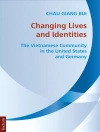Seit vor 30 Jahren das erste »Reagenzglas- Baby« der Welt geboren wurde, haben sich In- vitro-Fertilisation (IVF) und andere Technologien »assistierter « Reproduktion weltweit verbreitet. Behandlung Suchende, Spenderinnen von Eizellen, Samenbanken und Ärzte agieren über nationale Grenzen hinweg, nicht selten entlang der Wohlstandsbruchlinien zwischen Ost und West und Nord und Süd. Die Autoren zeichnen in ethnografischen Studien die große Vielfalt lokaler Anwendungen von Reproduktionstechnologien auf vier Kontinenten nach und folgen gleichzeitig den transnationalen Routen des Medizinmarktes. Die Reproduktionsmedizin steht dabei beispielhaft für die biotechnologische Globalisierung.
In the thirty-five years since the first ‘test-tube baby, ‘ in-vitro fertilization and other methods of reproductive assistance have become a common aspect of family life and medicine in affluent nations and, increasingly, throughout the world. How do persons seeking treatment, donors, and medical experts make use of these reproductive technologies? How in crossing borders between nations do they manage to evade legal and bioethical regulations? And how do they make sense of these new modes of making kinship against the backdrop of diverse worldviews and social settings? In bringing together a wide array of ethnographic studies this volume offers both a current snapshot of the complexity and diversity of local or national IVF-cultures and of emerging transnational forms of mobility, competition, inequality and collaboration. Reproductive technologies as global form refer to the simultaneity of replicating standards and creating differences, of displacements and reappropriations, raising a plethora of provocative questions for the future.
表中的内容
Contents
Acknowledgments ………………………………………………………………………9
Reproductive Technologies as Global Form: Introduction ……………….11
Michi Knecht, Maren Klotz, Stefan Beck
Five Million Miracle Babies Later: The Biocultural
Legacies of IVF ………………………………………………………………………..27
Sarah Franklin
Localizing In Vitro Fertilization: The Cultural Work of Encounters with Medical Technologies
Legacies and Linkages: Episodes in the Establishment of
New Reproductive Technologies in Contemporary Sri Lanka…………..61
Bob Simpson
Practitioners as Interface Agents between the Local and
the Global: The Localization of IVF in Turkey ………………………………81
Zeynep B. Gürtin
Making Connections: Reflecting on Trains, Kinship, and
Information Technology…………………………………………………………..111
Maren Klotz
National Styles of Reproductive Governance and Global Forms
The Other Mother: Supplementary Wombs and the
Surrogate State in India ……………………………………………………………139
Aditya Bharadwaj
Assisted Reproductive Technologies in Mali:
Asymmetries and Frictions ……………………………………………………….161
Viola Horbst
Concerned Groups in the Field of Reproductive
Technologies: A Turkish Case Study ………………………………………….197
Nurhak Polat
Tracing Transnational Scapes of Reproductive Technologies: Emergent Forms and Domains of Regulation
Globalization and Gametes: Reproductive »Tourism«,
Islamic Bioethics, and Middle Eastern Modernity ………………………..229
Marcia C. Inhorn
Reproducing Hungarians: Reflections on Fuzzy Boundaries
in Reproductive Border Crossing……………………………………………….255
Eva-Maria Knoll
What is Europeanization in the Field of Assisted
Reproductive Technologies? ……………………………………………………..283
Maren Klotz & Michi Knecht
Transnational Reproductive Mobilities, Materialities, and Agencies
Making Interferences: The Cultural Politics of Transnational
Ova »Donation« ……………………………………………………………………..305
Michal Nahman
Resemblance that Matters: On Transnational Anonymized
Egg Donation in Two European IVF Clinics……………………………….331
Sven Bergmann
Biomedical Mobilities: Transnational Lab-Benches and
Other Space-Effects…………………………………………………………………357
Stefan Beck
Notes on Contributors …………………………………………………………….375
Index of Names and Places ……………………………………………………….381
关于作者
Die Herausgeberinnen und Herausgeber arbeiten als Ethnologen an der Humboldt- Universität zu Berlin.












